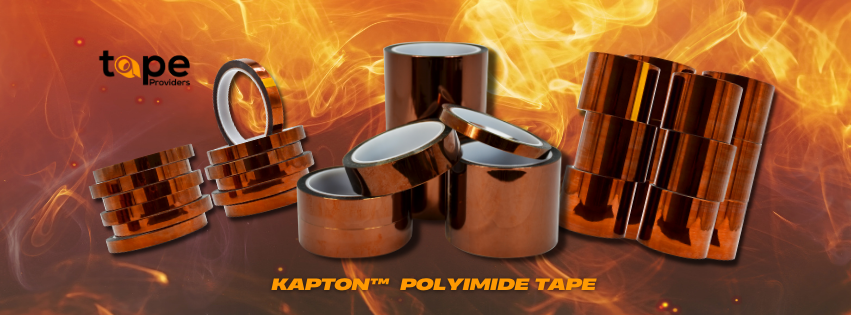
Kapton™ and Polyimide Tape: Differences, Properties, and Uses Guide for 2025
What Is It?
Kapton™ Tape is a type of polyimide tape, an adhesive film renowned for its extreme heat resistance, and electrical insulation.
Its high heat resistance and durability make it ideal for demanding tasks such as circuitboard soldering, electronics, and 3D printing.
Polyimide & Kapton Tape: What's The Difference?
 While the commonly interchanged use of the terms may allude to it, Kapton isn’t the only type of polyimide tape available on the market today, though it is likely the most renowned. As a result, the two terms are often used interchangeably.
While the commonly interchanged use of the terms may allude to it, Kapton isn’t the only type of polyimide tape available on the market today, though it is likely the most renowned. As a result, the two terms are often used interchangeably.
Therefore, while both polyimide and Kapton™ tape are made of high-performance, heat-resistant materials, the main difference lies in branding.
-
Polyimide Tape:
-
Material: Polyimide is a class of polymer that is known for its high temperature, electrical, and chemical resistance.
-
General Use: Polyimide tape is a broad category and can refer to any tape made from polyimide material, not necessarily a specific brand.
-
Variety: There are many manufacturers producing polyimide tapes with slight variations in adhesive strength, thickness, and temperature tolerance.
-
Kapton™ Tape:
-
Brand: Kapton™ is a specific brand of polyimide tape, manufactured by DuPont.
-
Reputation: It’s the most renowned and widely recognized polyimide tape due to its excellent reputation for quality and reliability.
-
Uses: Often associated with electronics, aerospace, and high-temperature applications, Kapton™ tape is known for its superior performance and consistency.
Key Takeaway:
All Kapton™ tapes are polyimide tapes, but not all polyimide tapes are Kapton™, which is simply a branded version of polyimide tape that has become synonymous with this high-quality, heat-resistant tape material.
 -What is Kapton™ tape made from? Who invented it?
-What is Kapton™ tape made from? Who invented it?
Kapton™ tape is crafted from polyimide resin, a polymer material first discovered in the 1960s by DuPont chemist Stephanie Kwolek.
- Now, just what is polymer?
Simply put, a polymer can be thought of as a long chain made up of tiny building blocks called monomers, kind of like how a necklace is made from many beads. Their union can create incredibly strong and resistant materials like polyimide.
Also referred to as “Kaptan Tape” or “Capton”, it is typically made from a high-strength resin stretched during manufacturing to create a thin, flexible material. The polyimide resin is formed into a film and often heat-treated to enhance its strength, flexibility, and thermal stability.
Since its inception, it has aided professionals in industries where high temperatures are involved, or where sensitive electrical components need protection.
Technical Properties of Polyimide Film Tape at Tape Providers™: 
As we discussed earlier, there are numerous manufacturers of polyimide adhesive films, each offering variations in their properties. Let’s go over the technical specifications of Tape Providers™ Polyimide tape offerings
-
Adhesive: High-performance silicone for superior bonding.
-
Carrier/Backing: Electrical grade polyimide film for enhanced insulation and heat resistance.
-
Dielectric Strength: > 4,000 volts, offering high electrical insulation properties for sensitive components.
-
Temperature Resistance: Polyimide tape can withstand temperatures ranging from -73°C (-100°F) to 260°C (500°F).
-
Adhesion: 23.8 ounces per inch (to stainless steel test panel), ensuring strong and reliable adhesion.
-
Tensile Strength: > 20.6 pounds per inch (longitudinal), providing excellent resistance to stretching and breakage.
-
Elongation: is > 30%, allowing the tape to stretch and conform without breaking.
-
Specifications Met: Certification(s) MIL-P-46112B, UL510 approved for flame retardance, meeting military and safety standards.
-
Chemical Resistance: Polyimide is resistant to many chemicals, oils, and solvents, which increases its versatility in different working environments.
-
Non-Conductive: This makes it particularly useful for protecting sensitive electronic circuits from heat and electrical interference.
- Kapton™ Polyimide tape uses and benefits:
There are many specific applications for this polyimide soldering tape, let’s briefly dive into some of its most common uses below:
- Electronics & Circuit Boards: Used for masking during circuit board soldering, wave soldering, and insulating in high-heat environments.
- 3D Printing: Serves as a build surface for 3D printers, improving adhesion and easing print removal.
- Aerospace & Automotive: Provides thermal insulation for wires and sensitive parts in high-temperature areas.
- Thermal Management: Protects parts from heat and thermal cycling in high-performance equipment.
- General Electrical Insulation: Used as an electrical insulator in transformers, motors, and high-voltage components.
- Masking for Coatings or Paint: Ideal for masking during powder coating, painting, and plating due to its high-temperature resistance.
How to Properly use Polyimide Tape: 2025 Tips and Tricks
Clean the Board: Wipe with isopropyl alcohol to remove dust and oils.
Cut the Tape: Measure and cut the tape to fit the area.
Apply the Tape: Peel off the backing and apply it securely to the circuit board.
Smooth it Out: Press down to remove air bubbles.
Proceed with Soldering: Use the taped areas for solderi8ng or wave soldering without worrying about heat or flux damage.
 FREQUENTLY ASKED QUESTIONS ABOUT POLYIMIDE TAPE:
FREQUENTLY ASKED QUESTIONS ABOUT POLYIMIDE TAPE:
1. What is Polyimide Tape?
Polyimide tape is a high-performance adhesive tape made from polyimide film, known for its heat resistance, electrical insulation, and chemical resistance. It’s used in industries like electronics and aerospace.
2. What Are the Benefits of Polyimide Tape?
Heat resistance from -269°C to 400°C, Electrical insulation with high dielectric strength, Chemical resistance for harsh environments, and Flexibility and strength in extreme conditions.
3. Where is Polyimide Tape Used?
It’s commonly used in electronics, circuit board insulation, aerospace, automotive applications, and thermal management.
4. What Temperature Range Can Polyimide Tape Withstand?
Polyimide tape can withstand temperatures ranging from -269°C to 400°C (-452°F to 752°F).
5. Is Polyimide Tape Conductive? 
No, polyimide tape is an insulator, making it ideal for protecting sensitive electrical components.
6. Can Polyimide Tape Be Used for Soldering?
Yes, polyimide tape is commonly used for masking during soldering to protect components from heat and flux.
7. What Will Polyimide Tape Stick To?
Polyimide tape adheres well to most surfaces, including metals, plastics, ceramics, and silicone, making it versatile for a range of industrial applications.
8. What Will Polyimide Tape Not Stick To?
Polyimide tape may have difficulty adhering to oily, dirty, or low-energy surfaces (like certain low-adhesion plastics). Ensure surfaces are clean and dry before application.
9. Can Polyimide Tape Be Removed Easily?
Yes, polyimide tape can be removed without leaving residue when applied correctly, although it may be more difficult to remove from high-temperature environments.
10. Is Polyimide Tape UV Resistant?
Yes, polyimide tape has excellent resistance to UV rays, making it suitable for use in applications exposed to sunlight or other UV sources.
11. Can Polyimide Tape Be Used Outdoors?
Polyimide tape can withstand outdoor environments, but its primary strength is in high-temperature and electrical applications, so it’s best suited for controlled environments rather than prolonged exposure to weather elements.
12. Is Polyimide Tape Flame Retardant?
Yes, polyimide tape is inherently flame-retardant, making it suitable for applications where fire resistance is critical.
13. What is the Difference Between Kapton and Polyimide Tape?
Kapton tape is a brand name for a type of polyimide tape. Both are made from polyimide film, but Kapton is specifically a well-known, high-quality version, widely recognized in industries for extreme heat resistance and electrical insulation.
14. What is the Difference Between Polyimide and Polyester Tape?
Polyimide tape has superior heat resistance, handling temperatures up to 400°C, making it ideal for high-temperature environments. Polyester or PET tape is generally more affordable and is used in lower-temperature applications (up to 150°C), making it suitable for less demanding environments.
15. What is Polyimide Tape For?
Polyimide tape is used for high-temperature insulation, masking during soldering, electrical insulation, and protecting sensitive components in electronics, aerospace, automotive, and industrial applications.
16. Is Kapton Tape the Same as Electrical Tape?
While Kapton tape is a type of electrical tape, it is specifically designed for high-temperature applications and electrical insulation in environments where traditional electrical tapes may not perform due to heat, voltage, or chemical exposure. Kapton is also more durable and heat-resistant compared to regular electrical tape.
17. What is the Shelf Life of Polyimide Tape?
Polyimide tape typically has a shelf life of 12 to 24 months, depending on storage conditions. To maximize its lifespan, store it in a cool, dry place, away from direct sunlight or excessive heat.
18. What is the Purpose of Polyimide Tape?
The main purpose of polyimide tape is to provide thermal insulation, electrical insulation, and chemical resistance in environments that experience high temperatures, electrical current, or harsh conditions.
19. What is the Best Adhesive for Polyimide?
The best adhesive for polyimide tape is typically high-performance silicone adhesive, which provides strong bonding while maintaining heat resistance and flexibility. This adhesive works well across a range of materials, including metals and ceramics.
20. How Do You Remove Polyimide Tape?
Polyimide tape can usually be removed easily by peeling it off carefully. If there is any residue, isopropyl alcohol can be used to clean the surface without damaging the components
21. Is Polyimide Tape Waterproof?
Polyimide tape is water-resistant, but it's not fully waterproof. It can withstand moisture exposure in many applications, but it's not designed for prolonged immersion in water. For waterproofing needs, consider using tapes specifically designed for that purpose.
About the Author: Tape Providers ™
 At Tape Providers™, our experts have been delivering high-performance tape solutions for over 20 years, helping businesses tackle their toughest insulation and heat-resistant challenges.
At Tape Providers™, our experts have been delivering high-performance tape solutions for over 20 years, helping businesses tackle their toughest insulation and heat-resistant challenges.
As trusted tape suppliers and wholesalers, we understand the specific demands of industries like electronics, aerospace, and automotive, where reliability and durability are paramount.
Our expertise spans both local markets in Miami-Dade, Palm Beach, and Broward counties, as well as nationwide through our online platform. We focus on offering the Kapton Polyimide tape products tailored to your needs, whether it's for high-temperature applications, electrical insulation, or thermal management.
Thanks to our commitment to quality and customer satisfaction, we’ve earned the trust of leading organizations such as NASA and Netflix, who have counted on us for superior tape solutions in their high-stakes projects.
If you're seeking advanced adhesive solutions in general or specialized polyimide tape for extreme environments, you’ve come to the right place!
Shop our Polyimide Tape Collection Today and Save Big With Our Competitive Pricing!
Product Catalog
-
Original price $1.40 - Original price $308.88Original price $1.40 - Original price $308.88Original price $163.80As low as: $1.40$1.40 - $237.60Current price $1.40
Colored Electrical Tape - Standard Grade - 66 feet | ETC766MS
Designed for professional and general-purpose use, it comes inOSHA-approved colors and is UL/CSA certified for safety...
View full details -
Original price $21.99 - Original price $579.99Original price $21.99 - Original price $579.99Original price $21.99As low as: $11.58$11.58 - $417.53Current price $11.58
Anti Slip Grip Tape - 20 yards | AST32
Key Features 60-Grit Silicone Carbide: Texture provides excellent grip and traction for added slip resistance (s...
View full details -
Original price $3.85 - Original price $627.20Original price $3.85 - Original price $627.20Original price $222.40As low as: $3.85$3.85 - $482.46Current price $3.85
Black PVC Foam Weather Stripping Tape | SSLDFT (Made in USA)
Black PVC Foam Tape Light Compression Our Weather Stripping Tape is a closed-cell foam* with a strong acrylic adhesi...
View full details -
Original price $1.40 - Original price $172.80Original priceAs low as: $1.40$1.40 - $172.80Current price $1.40
5 Mil Vinyl Pinstripe Floor-Marking Tape - 36 yards | VTC365
Our WOD VTC365 Colored Vinyl Tape is durable and long-lasting. It's easy to write on and provides excellent protectio...
View full details -
Original price $3.74 - Original price $599.04Original priceAs low as: $3.74$3.74 - $599.04Current price $3.74
Engineering Grade Reflective Tape - 10 yards | RTC7
Engineering Grade Reflective Tape: the go-to solution for both permanent and temporary traffic signage, offering unma...
View full details -
Original price $1.43 - Original price $287.76Original priceAs low as: $1.43$1.43 - $287.76Current price $1.43
Metalized Polyester Mylar Film Tape | MPFT1 (72 yd)
Metalized Tape - Shiny Polyester Mylar Film Tape WOD MPFT1 Metalized Polyester Film Tape features a brilliant, mirror...
View full details -
Original price $14.55 - Original price $223.78Original priceAs low as: $14.55$14.55 - $223.78Current price $14.55
Colored Duct Tape - Industrial Grade - 60FT | DTC10 (2.5" to 6" wide)
INDUSTRIAL GRADE DUCT TAPE Key Features Upgrade to Industrial Strength With DTC10 – Superior Durability, Stronger ...
View full details -
Original price $11.87 - Original price $446.40Original price $11.87 - Original price $446.40Original price $11.87As low as: $4.03$4.03 - $334.62Current price $4.03
Gaffer Tape - Standard Grade - 60 FT | GTC12
Standard grade gaffer tape designed for professional use: your go-to solution for film productions, theater setups, a...
View full details -
Original price $1.63 - Original price $240.00Original priceAs low as: $1.63$1.63 - $240.00Current price $1.63
Colored Masking Tape - All Purpose | MTC5 (Made in USA)
MTC5 Colored Masking Tape A versatile, high-performance crepe paper tape designed for painting, labeling, arts & ...
View full details -
Original price $4.08 - Original price $409.67Original price $4.08 - Original price $409.67Original price $265.64As low as: $4.08$4.08 - $315.13Current price $4.08
Bi-Directional Filament Tape | BFST47
Bi Directional Filament Tape WOD BFST47 Bi Directional Filament Tape is designed for highly demanding applications su...
View full details


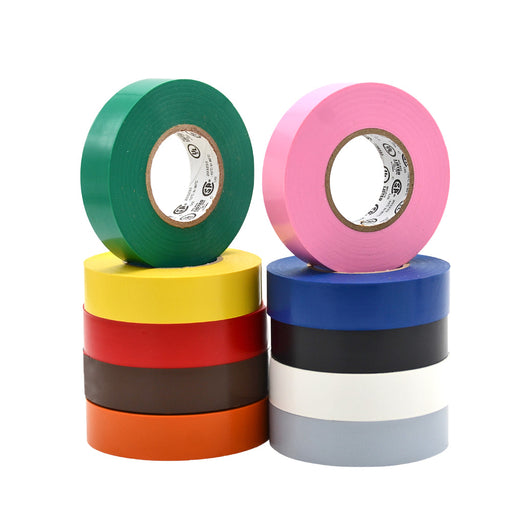
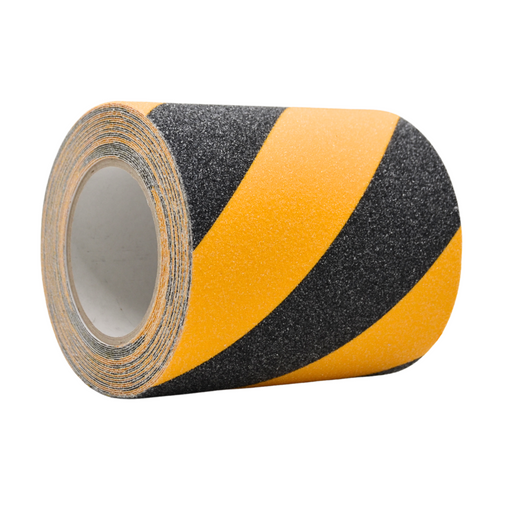
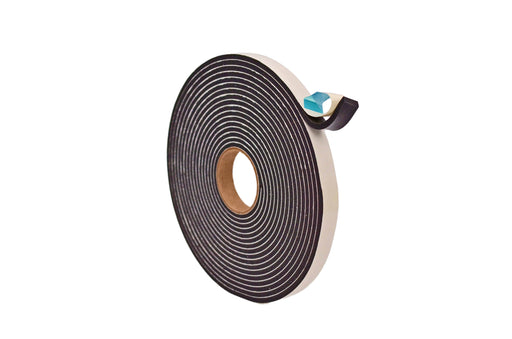
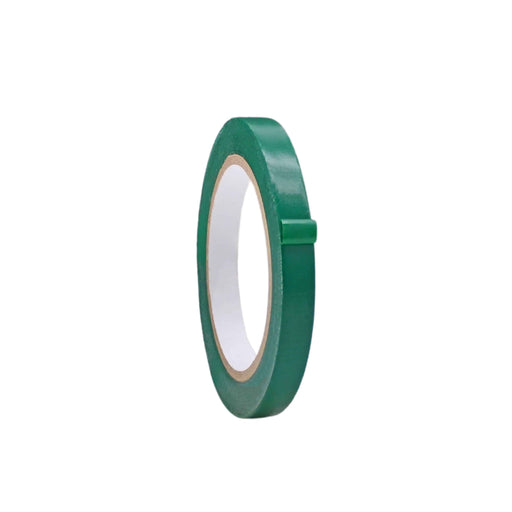
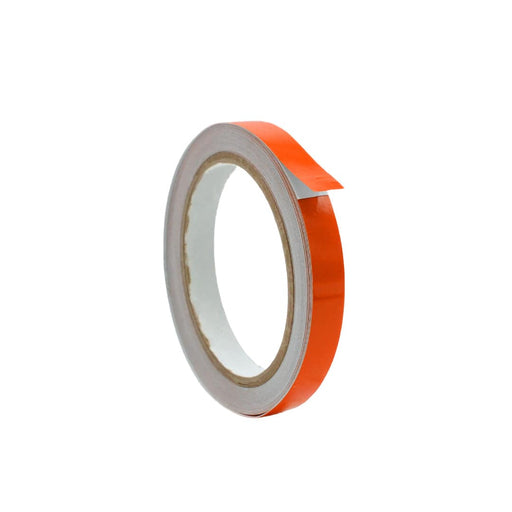
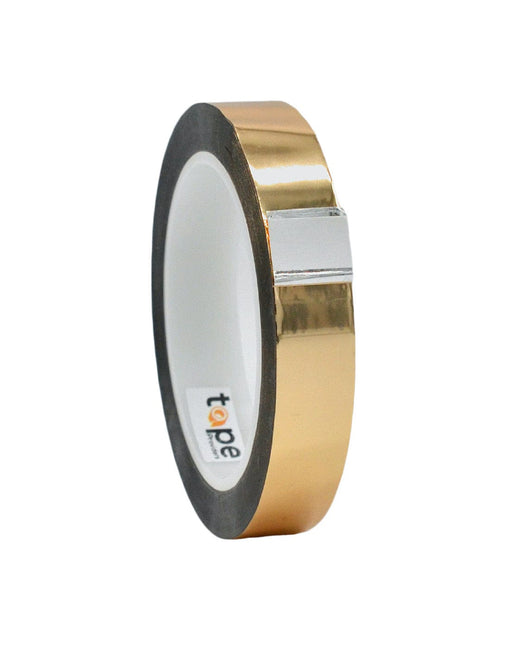

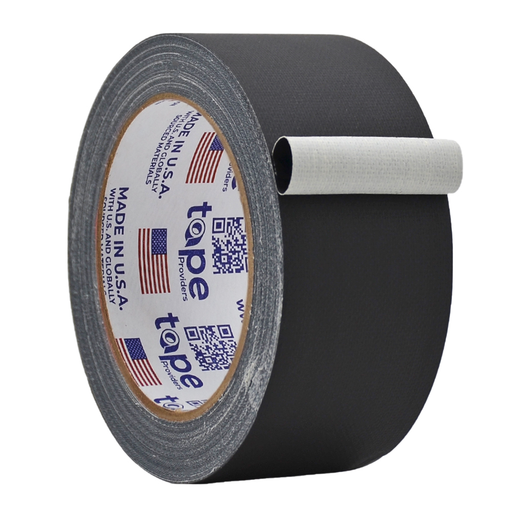
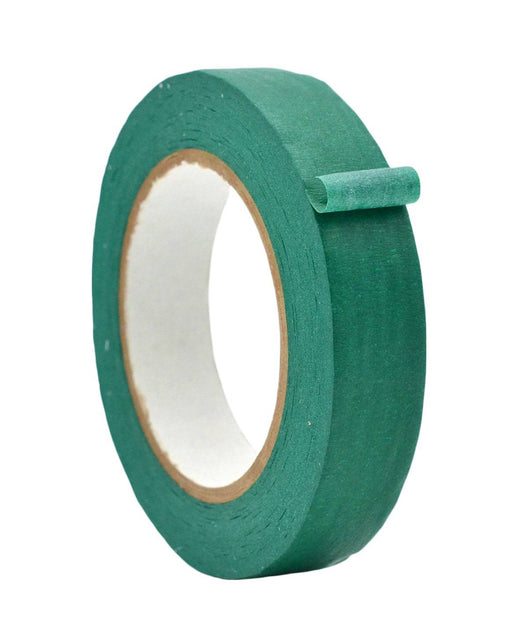
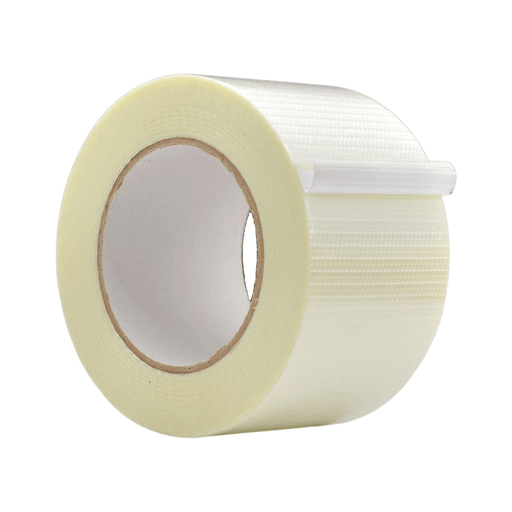
Leave a comment